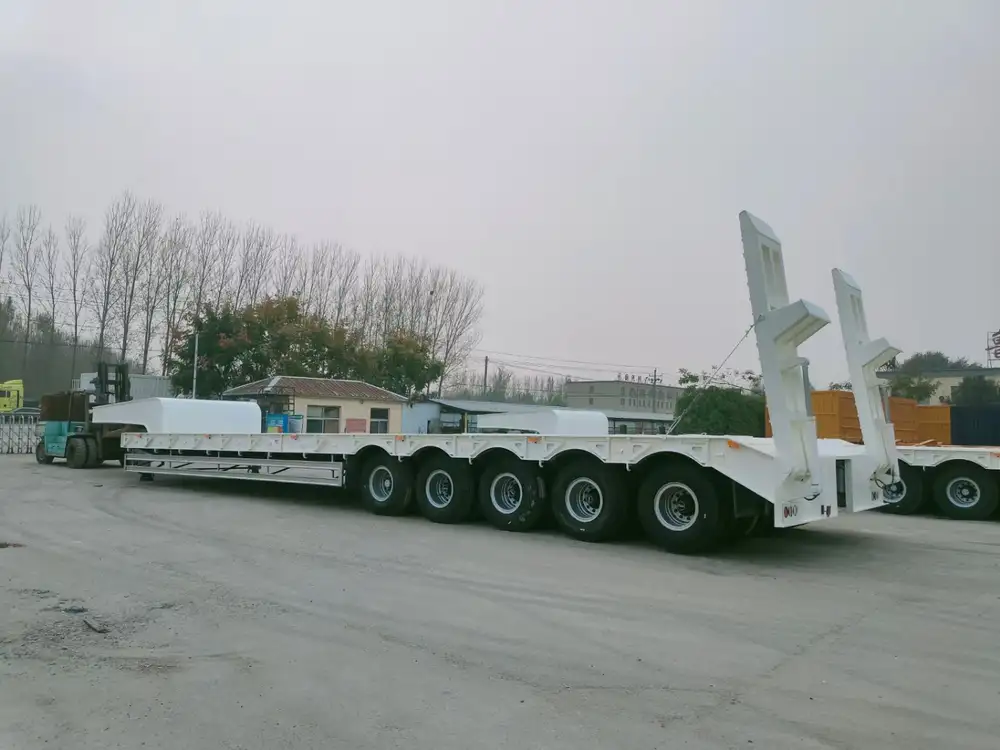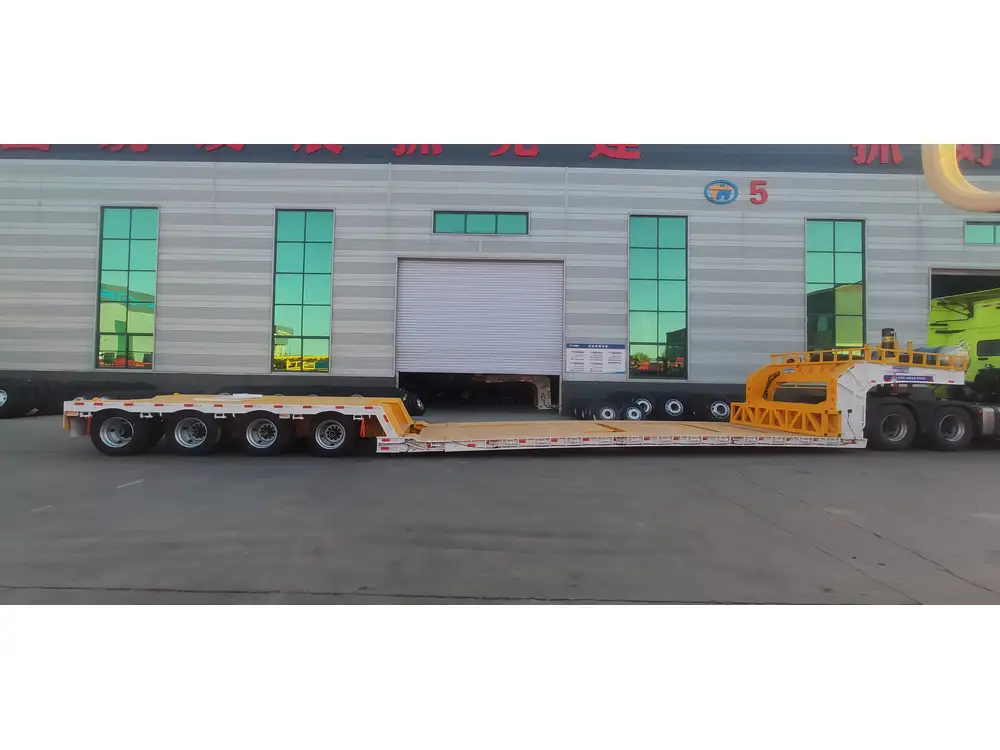Navigating the world of commercial trucking involves understanding various regulations and requirements, especially when it comes to transporting specific cargo types. One especially pertinent question that arises is whether a pneumatic tank trailer necessitates a tanker endorsement. Understanding this topic is crucial for drivers, fleet owners, and safety compliance officers. We delve into the facets of why, when, and how pneumatic tank trailers are regulated and the implications for those who operate them.
Understanding Pneumatic Tank Trailers
Pneumatic tank trailers are specialized vehicles designed to transport dry bulk materials through pneumatic pressure, as opposed to traditional liquid tankers that depend on gravitational flow. These trailers are commonly used for transporting materials such as:
- Cement
- Grain
- Plastic pellets
- Powdered chemicals
The design of a pneumatic tank trailer typically includes a series of compartments and, at times, multiple hoppers, allowing for the segregation of different materials. The method of unloading involves a blower system that creates a vacuum, pushing the product out of the tank and into its destination, be it another vehicle or a storage facility.
Key Components of Pneumatic Tank Trailers
| Component | Description |
|---|---|
| Tank | The main body for holding bulk material; often isolated in sections |
| Blower | A high-capacity air-moving device used to unload the tank |
| Control Valves | Regulate air pressure and flow during unloading |
| Piping Systems | Transfers material from the tank to the unloading site |
| Safety Valves | Prevent over-pressurization during the unloading process |

Regulatory Framework
The Need for Endorsements
The Federal Motor Carrier Safety Administration (FMCSA) manages regulations concerning commercial drivers and vehicle qualifications. From this standpoint, the question of whether a pneumatic tank trailer requires a specific tanker endorsement hinges on the substance being transported.
Tanker Endorsement Requirements
Tanker Endorsement (N): This endorsement is mandated for commercial driver’s licenses (CDLs) operating vehicles that are designed to transport liquids in bulk, or any combination of vehicles that can transport liquid or gaseous materials. The key aspect revolves around whether the contents are classified officially as liquids.
Dry Bulk Transport: If the pneumatic tank trailer is employed exclusively for transporting dry bulk materials, the tanker endorsement may not be requisite. However, the FMCSA does stipulate regulations governing the general operation of all commercial vehicles, inclusive of safety equipment and operational protocols.

Specific Scenarios for Pneumatic Tank Trailers
To elucidate the requirement based on substance, let’s analyze several scenarios:
| Substance | Requires Tanker Endorsement? |
|---|---|
| Liquid Cement Slurry | Yes |
| Dry Powdered Cement | No |
| Plastic Pellets | No |
| Liquid Fertilizer | Yes |
| Resin in Liquid Form | Yes |
Considerations for the Driver
Understanding Material Classification: Drivers must ascertain the classification of the cargo they are carrying. Knowing whether the material is deemed a liquid or solid can help clarify endorsement requirements.
Training Requirements: While a pneumatic tank trailer carrying dry bulk may not necessitate a tanker endorsement, specialized training on the proper operation of pneumatic systems and safe handling of the materials being transported is essential.
Local Regulations: It’s important to consider that states may impose additional requirements and regulations beyond federal mandates. Thus, regions with varying definitions of what constitutes a liquid or dry bulk could yield differing requirements for driver endorsements.
Compliance and Safety Protocols
Regardless of the endorsement status, safety remains paramount. The following protocols ensure safe operation and compliance with the law:

Regular Inspections
To maintain operational safety, drivers should perform regular inspections on:
- Structural integrity of trailers
- Functionality of pneumatic systems
- Operational state of safety valves
- Tire conditions
- Braking systems
Training Programs
Investing in effective training programs for drivers can mitigate risks. Key training areas include:
- Emergency procedures for pneumatic trailers
- Troubleshooting pneumatic systems
- Safe unloading practices
- Hazardous materials handling
Practical Implications for Operators

Cost Impact Due to Regulatory Compliance
As with virtually all regulatory frameworks, compliance entails both direct and indirect costs. For commercial operators of pneumatic tank trailers, understanding these costs is essential:
| Cost Type | Description |
|---|---|
| Initial Training | Expenses associated with training drivers on safe operational practices |
| Compliance Fees | Fees associated with maintaining endorsements and registrations |
| Inspection Costs | Weekly or monthly checks could incur costs in terms of labor and repairs |
| Insurance Premiums | Liability and cargo insurance could increase based on cargo type and hazards |
Impact on Operational Flexibility
Understanding whether a pneumatic tank trailer requires a tanker endorsement also influences operational flexibility:
Adoption of Various Cargo Types: Depending on the product(s) that can be transported without special certifications, operators might broaden their market reach and service offerings.
Streamlined Licensing: In cases where no tanker endorsement is required, it allows for easier recruitment of qualified drivers.
Potential Legal Liabilities
Inadvertently hauling materials requiring an endorsement without proper licensing can expose drivers and operators to severe penalties, including:
- Fines
- Vehicle impoundments
- Increased liability insurance rates
- Legal action in the event of an accident

Conclusion
In conclusion, the necessity of a tanker endorsement for pneumatic tank trailers is not a one-size-fits-all inquiry; it largely depends on the material being transported. While transporting dry bulk materials typically does not necessitate such an endorsement, nuances in cargo classification and localized regulations must be carefully considered.
Operators should ensure complete understanding of both federal and state requirements and invest in appropriate training programs to foster a knowledgeable workforce. Doing so will not only ensure compliance but also enhance safety and efficiency, ultimately leading to better operational outcomes.
By prioritizing safety, staying informed of regulatory requirements, and fostering a culture of continuous learning, we can confidently traverse the complexities surrounding pneumatic tank trailers and their unique standing in the trucking industry. Understanding these intricacies will facilitate better business decisions and enhance overall operational efficiency.



